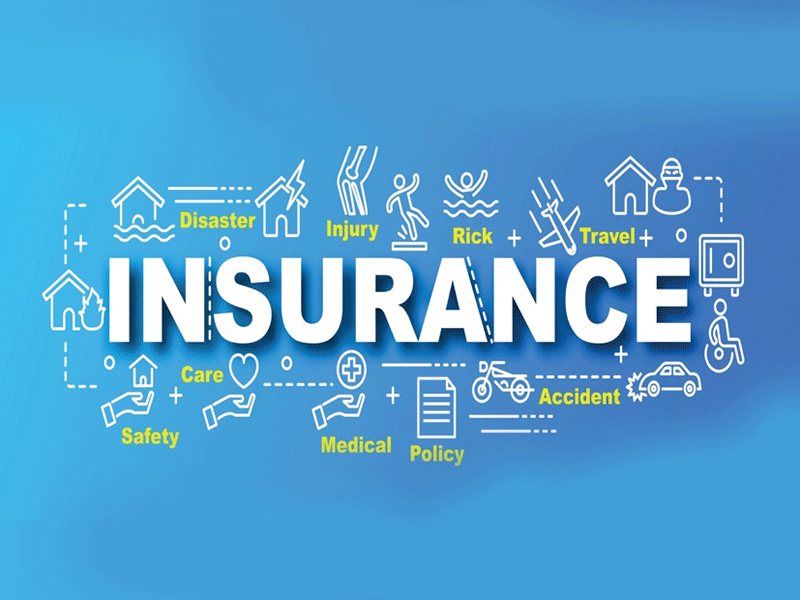Choosing the right insurance plan can be a daunting task. With so many options available, it’s essential to understand the various types of insurance plans and how each can meet your specific needs. Whether you are looking for health insurance, life insurance, auto insurance, or home insurance, the right plan can provide the security and peace of mind you need. In this article, we will break down how to compare insurance plans, how to assess your needs, and how to choose the best one for you and your family.
Key Takeaways
- Assess Your Needs: Understand your personal and family needs before choosing an insurance plan.
- Compare Coverage: Make sure the insurance plan covers the specific risks you are concerned about.
- Balance Costs: Consider both premiums and deductibles to find a plan that fits your budget.
- Check Reputation: Choose an insurer with a good reputation for customer service and claims handling.
- Review Terms: Always read the fine print to understand exclusions, limitations, and additional benefits.
Understanding Insurance Plans
What is Insurance?

Insurance is a financial safety net that helps protect you from potential losses. When you buy insurance, you enter into a contract with an insurer, agreeing to pay premiums in exchange for protection from specific risks or losses. Insurance helps cover expenses like medical bills, car repairs, or home damages, depending on the type of insurance.
Types of Insurance Plans
There are several different types of insurance plans, each designed to cover different aspects of your life. Below are some common types of insurance plans:
- Health Insurance: Covers medical expenses, including doctor visits, hospital stays, prescription drugs, and surgeries.
- Life Insurance: Provides financial support to your beneficiaries in the event of your death.
- Auto Insurance: Covers damages to your car and liability for damages or injuries you cause in an accident.
- Homeowners Insurance: Protects your home against damage from fire, theft, or other disasters.
- Renters Insurance: Covers the loss or damage to personal property in rented housing.
- Disability Insurance: Offers income replacement if you become disabled and unable to work.
- Travel Insurance: Covers unexpected events while traveling, such as trip cancellations, medical emergencies, or lost luggage.
Importance of Choosing the Right Plan
Choosing the right insurance plan is essential because it ensures you are adequately protected from the financial consequences of unexpected events. Without proper coverage, you may end up paying out-of-pocket for expensive services, which could lead to significant financial strain. The right insurance plan can also offer peace of mind, knowing that you and your loved ones are taken care of in times of need.
Factors to Consider When Comparing Insurance Plans
When you start comparing insurance plans, it’s essential to keep certain factors in mind. Each of these will have a significant impact on your experience with the insurer and your overall satisfaction with the plan.
Coverage Options
| Coverage Option | Description |
|---|---|
| Health Insurance | Covers medical expenses like doctor visits, hospital stays, and surgeries. |
| Life Insurance | Provides a payout to beneficiaries after the policyholder’s death. |
| Auto Insurance | Covers damages to vehicles and liability for accidents or injuries. |
| Homeowners Insurance | Protects against damage to your home and personal belongings from fire, theft, or natural disasters. |
| Renters Insurance | Covers personal property and liability within a rented home or apartment. |
| Disability Insurance | Provides income replacement if you’re unable to work due to illness or injury. |
| Travel Insurance | Covers trip cancellations, medical emergencies, and lost luggage while traveling. |
| Business Insurance | Covers risks related to business operations, including liability, property damage, and employee injuries. |
Coverage refers to the types of expenses or risks an insurance plan will cover. Before choosing a plan, you must evaluate your needs and ensure that the plan provides coverage for the most likely events you could encounter. For instance, health insurance should cover your primary medical needs, including visits to the doctor, hospital stays, and prescription drugs. Similarly, car insurance should cover damages to your vehicle as well as liability for injuries caused to others.
Premiums and Deductibles
Premiums are the amount you pay for your insurance policy, typically on a monthly or annual basis. Deductibles refer to the amount you need to pay out-of-pocket before your insurance begins to pay for a claim. When comparing insurance plans, it’s essential to find the right balance between premiums and deductibles. High premiums may seem like a better deal, but they can be more expensive in the long run. Similarly, choosing a plan with a high deductible may lower your premium but can result in higher costs if you need to file a claim.
Insurance Provider’s Reputation
The reputation of the insurance provider is a crucial consideration when comparing insurance plans. A reliable insurer with a good track record for handling claims and providing excellent customer service will give you peace of mind in case you need to file a claim. Look for reviews and ratings from reputable sources, such as the Better Business Bureau (BBB), and check for complaints or issues with the company’s claims process.
Customer Support and Claim Handling
An often-overlooked factor in choosing an insurance plan is the customer support offered by the insurance company. How quickly and efficiently does the insurer handle claims? Does the company offer online tools or apps to make the claims process easier? Do they have responsive customer service representatives who can assist you with any questions you may have? These factors will directly impact your satisfaction with the plan.
Network Coverage and Benefits
Many insurance plans have network restrictions. For health insurance, this might mean you can only visit specific doctors or hospitals. For auto or home insurance, it might mean working with specific repair shops or contractors. Be sure to check if the insurance plan you’re considering offers a network of providers that is convenient for you.
Exclusions and Limitations
Every insurance policy has exclusions – specific circumstances that are not covered under the plan. For example, a health insurance policy may not cover certain types of treatments, or an auto insurance policy may exclude damages caused by certain events, such as natural disasters. Carefully review the exclusions and limitations of each plan to ensure it meets your needs.
How to Assess Your Needs

Before diving into the specifics of comparing insurance plans, you first need to assess your personal or family needs. This will help you understand what type of coverage you need and what amount of protection is appropriate for your situation.
Assessing Financial Stability
One of the primary factors to consider when selecting an insurance plan is your financial stability. Determine what you can realistically afford to pay for insurance premiums while still covering your other living expenses. Keep in mind that the cheapest plan isn’t always the best option. In some cases, it may be worth paying a higher premium for better coverage, especially if you are at a higher risk for certain events.
Health and Wellness Considerations
For health insurance, assess your current health status and consider any chronic conditions, medications, or treatments you may require. For life insurance, think about your family’s financial needs if something were to happen to you. Are there dependents who rely on your income? Do you have any existing debts or obligations that would need to be covered in your absence?
Family Dynamics and Responsibilities
If you have a spouse or children, their needs will also factor into your insurance decisions. Consider their medical and financial requirements when choosing health, life, and other types of insurance. A family plan may be more cost-effective than individual plans, but you must ensure that the coverage meets everyone’s needs.
Understanding Your Risk Profile
Every person has a different risk profile based on their lifestyle, occupation, and other factors. If you have a high-risk job or frequently travel, you may need additional coverage for accidents or unexpected medical needs. Likewise, if you live in an area prone to natural disasters, homeowners or renters insurance with disaster coverage should be a priority.
Common Types of Insurance Plans

Health Insurance
Health insurance helps cover the costs of medical treatments, including hospital visits, surgeries, and prescriptions. When comparing health insurance plans, pay attention to factors like premiums, deductibles, network restrictions, and coverage for specific treatments. Consider whether you need a plan with high coverage or a high-deductible health plan (HDHP) with lower premiums.
Life Insurance
Life insurance provides financial protection to your loved ones in the event of your death. It can cover funeral expenses, replace lost income, pay off debts, and fund future expenses like college tuition. Life insurance plans come in two main types: term life insurance and permanent life insurance. Term life insurance offers coverage for a specific period (usually 10-30 years), while permanent life insurance covers you for life and may build cash value over time.
Auto Insurance
Auto insurance protects you financially if you’re involved in a car accident. It covers damages to your vehicle, liability for damage caused to others, and medical expenses resulting from an accident. When comparing auto insurance plans, consider factors like coverage limits, the type of vehicle you drive, and your driving history.
Homeowners and Renters Insurance
Homeowners insurance protects your home and personal property against damage from fire, theft, and natural disasters. Renters insurance, on the other hand, covers the loss of personal property in a rented home. Both types of insurance can also cover liability for accidents that happen on your property.
Step-by-Step Guide to Comparing Insurance Plans

Step 1: Identify Your Insurance Needs
The first step in choosing the right insurance plan is to identify your needs. Are you looking for coverage for your health, your car, or your home? Make a list of all the risks you want to protect against.
Step 2: Research Insurance Providers
Look for insurance providers with good reputations and customer service records. Research companies online, check for ratings from independent agencies, and get recommendations from friends or family.
Step 3: Compare Plans Based on Coverage
Evaluate the coverage offered by each plan. Does it meet your needs? Are there any exclusions or limitations that could affect you?
Step 4: Evaluate Costs (Premiums and Deductibles)
Consider both the premiums and the deductibles when comparing plans. Choose the option that offers a balance between affordability and adequate coverage.
Step 5: Assess the Insurer’s Reputation
Look for reviews and testimonials from other customers to get a sense of the insurer’s reputation. This includes how they handle claims and whether they offer good customer service.
Step 6: Check for Additional Benefits
Some insurance plans offer additional perks, such as wellness programs, discounts on auto repairs, or free annual checkups. Evaluate these benefits when comparing plans.
Step 7: Review Terms and Conditions
Before committing to an insurance plan, review all the terms and conditions to ensure you fully understand what is covered and what isn’t.
Also Read : How Insurance Works: A Beginner’s Guide
Conclusion
Choosing the right insurance plan is a decision that requires careful thought and research. By understanding the various types of insurance, evaluating your needs, and comparing different options based on coverage, cost, and reputation, you can find a plan that best suits your situation. Insurance can be an essential tool to protect you and your loved ones, so it’s worth taking the time to make the right choice.
FAQs
What is the difference between term and permanent life insurance?
- Term life insurance provides coverage for a set period, while permanent life insurance covers you for life and may build cash value.
What does “network coverage” mean in health insurance?
- Network coverage refers to the list of doctors, hospitals, and healthcare providers that are covered under your health insurance plan.
What is a deductible?
- A deductible is the amount of money you must pay out-of-pocket before your insurance policy begins to pay for covered expenses.
Can I change my insurance plan at any time?
- In most cases, you can change your insurance plan during open enrollment periods, but some plans allow changes due to life events (e.g., marriage, childbirth).
How does auto insurance liability work?
- Auto insurance liability covers the costs of damage or injuries caused to others in an accident that you are responsible for.
What should I do if my insurance claim is denied?
- If your claim is denied, review the reason, appeal the decision if necessary, and consider contacting your insurance company’s customer support for clarification.
Are premiums the only cost associated with insurance?
- No. Deductibles, copayments, and coinsurance may also be costs you need to pay in addition to your premiums.




